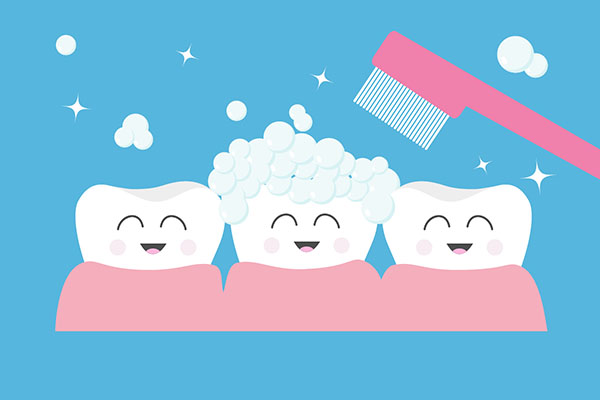 In and of themselves, bleeding gums are not a huge cause for concern. However, the cause is worth investigating, as it may indicate a serious condition, such as gum disease or gingivitis, or the root of the issue may be nothing more than a change in dental hygiene habits. Before you panic, check out these common reasons for bleeding from the gums and determine whether any make sense for your situation.
In and of themselves, bleeding gums are not a huge cause for concern. However, the cause is worth investigating, as it may indicate a serious condition, such as gum disease or gingivitis, or the root of the issue may be nothing more than a change in dental hygiene habits. Before you panic, check out these common reasons for bleeding from the gums and determine whether any make sense for your situation.
Top causes of bleeding gums
While gum disease can lead to bleeding from the gums, sometimes the cause is simpler. Here are the top changes people make to their dental hygiene and lifestyle routines that can lead to this issue.
Brushing too vigorously
Brushing too hard or too often can wear at the gums and cause bleeding. This is especially the case for those who use hard-bristled toothbrushes. Ideally, people should brush gently and with a soft-bristled brush.
Using a new toothbrush
As well as brushing too harshly, brushing the teeth with a new toothbrush can aggravate the gums. A new toothbrush is not as worn, and therefore not as soft, as a well-used one. For the first couple of uses with a new toothbrush, brush extra gently.
Flossing too hard or infrequently
People who floss too harshly risk tearing or aggravating the gum tissue and causing it to bleed. Like with brushing, floss gently to avoid causing more harm than good.
Flossing should be done at least once a day. People who floss sporadically — as in once a week, once a month or less — may experience bleeding each time they floss. The gums are not used to the additional care and need time to adjust to the additional routine. As the tissue becomes healthier, it will become stronger and less sensitive.
Failing to brush and floss at all
Bleeding gums are often an indicator of poor oral hygiene habits. Individuals who neglect oral hygiene are likely to develop gum disease, one of the first symptoms of which is bleeding. In fact, missing just a day of brushing or flossing can cause the tissue to become swollen and sensitive to the lightest touch. The recommended way to prevent bleeding from the gums is to remain consistent about brushing and flossing.
Making lifestyle changes
Sometimes, lifestyle changes can cause the gums to bleed. For instance, certain medications thin the blood and result in easier bleeding, including at the gumline. The increase in hormones that occurs during pregnancy can cause blood to rush to the gums, making the tissue more sensitive to things like brushing and bacteria. A poor diet that consists of a lot of processed foods and few healthy options can lead to gum irritation, swelling, and eventual bleeding. Finally, stress and anxiety can trigger the body’s immune response, which triggers inflammation and can cause the gums to bleed.
Conclusion
Bleeding gums can be cause for concern, or the symptom may just be the result of changes in dental hygiene habits. To figure out the cause and keep the issue from progressing, contact a dentist today.
Request an appointment or call Lush Dental Co. at 801-326-4131 for an appointment in our Highland office.
Related Posts
Diabetes can wreak havoc on several aspects of a person’s health, including tooth and gum health, with a strong connection between diabetes and gum disease. Bleeding gums are one of the earliest signs of gum disease and should be an immediate cause for concern for any person who lives with either type 1 or type…
Bleeding gums are a hallmark sign of gingivitis. Gingivitis is a mild form of gum disease. Inflammation in your gums can cause them to appear red and puffy. Your gums may bleed when you brush or floss your teeth the way you normally do. You may have healthy gums and still develop gingivitis during pregnancy.…
Patients who notice their gums bleeding upon brushing, flossing, or even eating may initially panic. However, while bleeding gums often signify the beginnings of gingivitis, this inflammation and the resulting gum disease can be reversed with timely and targeted treatments if it is caught soon enough. It is important to investigate the cause of long-term…
